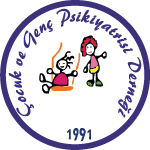ABSTRACT
Tardive dyskinesia is an abnormal, involuntary, and repetitive movement disorder that occurs during treatment with antipsychotic drugs. Although its pathophysiology has not been fully elucidated, it is usually a late-onset and chronic condition that significantly affects quality of life. A small number of cases of tardive dyskinesia have been reported in patients treated with aripiprazole as antipsychotic medication. The majority of case reports involve adult patients, while reports of tardive dyskinesia following aripiprazole treatment in children and adolescents remain limited. In this case report, the side effect of tardive dyskinesia, which developed following long-term aripiprazole use and regressed rapidly after drug discontinuation, was discussed in a 16-year-old patient who was follow-up with the diagnoses of major depressive disorder and dissociative disorder.



